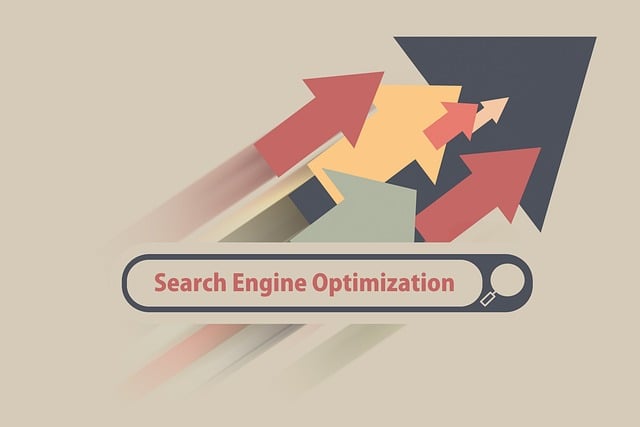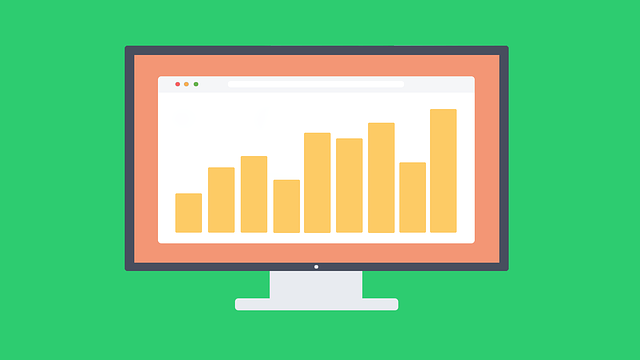Off-Page SEO is a critical component of digital marketing, focusing on building authority and trust outside your website. Key strategies include acquiring backlinks from reputable sources, engaging in social media activities, and leveraging influencer partnerships. These external factors signal search engines like Google that your content is valuable, enhancing site visibility, driving organic traffic, and boosting conversions. High-quality backlinks from relevant authority sites are particularly impactful, indicating trustworthiness to search engines. Effective Off-Page SEO involves identifying these authorities, creating valuable content, measuring link performance, and avoiding low-quality or spammy links.
In the dynamic landscape of digital marketing, understanding off-Page SEO is pivotal. This article delves into external link building, a crucial component of off-Page SEO strategies, to enhance your website’s visibility and authority. We’ll explore how high-quality backlinks impact search rankings, guide you through effective acquisition strategies, and highlight the benefits of relevant authority sites. Additionally, we’ll provide tips for creating engaging content and offer insights on measuring link performance while avoiding common off-Page SEO pitfalls.
Understanding Off-Page SEO and Its Impact

Off-Page SEO refers to the practices that take place outside of your website to improve its search rankings. Unlike On-Page SEO, which focuses on optimizing content and site structure within your pages, Off-Page SEO involves building authority and trust for your site through external factors. This includes a range of strategies such as acquiring backlinks from reputable sources, engaging in social media activities, and leveraging influencer partnerships.
The impact of Off-Page SEO cannot be overstated. Search engines like Google use these external signals to gauge the quality and relevance of your website. A strong Off-Page SEO strategy can significantly enhance your site’s visibility, drive organic traffic, and ultimately, boost conversions. Backlinks, in particular, act as votes of confidence from other websites, indicating to search engines that your content is valuable and trustworthy. This positive signal strengthens your site’s position in search results, making it a crucial component for any digital marketing strategy.
Definition of External Link Building

External Link Building is a strategic process within the broader scope of Off-Page SEO. It involves acquiring backlinks from other websites, which serve as references to your own site. These backlinks are crucial for boosting your website’s authority and visibility in search engine results pages (SERPs). When high-quality and relevant sites link to yours, it tells search engines that your content is valuable and trustworthy, thereby improving your site’s ranking and credibility.
This method is a powerful tool to expand your online reach and create a positive reputation for your brand. By carefully selecting and securing links from reputable sources, you can drive targeted traffic, increase brand awareness, and establish yourself as an authority in your industry. Effective External Link Building requires a deep understanding of your target audience, competitive landscape, and the art of cultivating meaningful relationships with other webmasters and influencers.
Strategies for Effective External Link Acquisition

External link building is a powerful component of Off-Page SEO, crucial for boosting your website’s authority and visibility. Strategies should focus on acquiring backlinks from reputable and relevant sources. This involves identifying industry influencers, high-authority websites in your niche, and engaging with them to secure links. Content marketing plays a significant role here; creating exceptional, shareable content increases the likelihood of natural backlinks as users and influencers alike find it valuable.
Additionally, guest blogging on established sites within your industry is an effective tactic. It allows you to contribute high-quality content while earning a backlink to your site. Networking and building relationships with other website owners or influencers can also lead to mutually beneficial link-sharing opportunities. Remember, quality always trumps quantity; one high-value backlink from a respected source can have more impact than several links from lesser-known sites.
Benefits of High-Quality Backlinks

High-quality backlinks are a powerful asset for any website seeking to boost its online visibility and search engine rankings. These links, obtained through strategic Off-Page SEO efforts, offer significant advantages in the digital landscape. One of the key benefits is the increased credibility and authority that comes with associations from reputable sources. Search engines like Google view these backlinks as votes of confidence, indicating that the linked content is valuable, trustworthy, and worth recommending to their users.
This leads to better search engine rankings, as algorithms consider a website’s backlink profile when determining its position in results pages. Quality backlinks also drive targeted traffic, as they refer users from relevant, established websites to yours, potentially increasing engagement and conversions. They contribute to building a strong online presence, making your site more visible and influential in its niche, ultimately enhancing its overall performance and success.
Identifying Relevant Authority Sites

Identifying relevant authority sites is a crucial aspect of successful off-page SEO strategies. This involves researching and targeting websites that are highly regarded in your niche or industry, known for their high-quality content and robust backlink profiles. Look for sites that consistently rank well in search engine results pages (SERPs) for keywords related to your target audience. Engaging with these authority sites can significantly boost your website’s credibility and visibility.
When conducting this research, consider factors such as domain authority, traffic volume, and the relevance of the content they publish. Tools like Ahrefs or Moz can help you analyze these metrics and identify potential partners for link-building opportunities. By strategically placing backlinks from these authoritative sources, you enhance your website’s search engine rankings and establish a more robust online presence.
Creating Engaging Content for Link Opportunities

Creating engaging content is a fundamental strategy in off-page SEO, as it attracts and encourages external links from other websites. When crafting content, focus on producing high-quality, valuable, and unique pieces that resonate with your target audience. This could involve sharing insightful blog posts, comprehensive guides, or interactive infographics that provide real value to readers. By creating such compelling content, you increase the likelihood of other sites naturally linking back to yours, as they will want to direct their audience to relevant and useful resources.
Additionally, incorporating a range of multimedia elements like videos, podcasts, or interactive tools can make your content more engaging and shareable. These formats tend to perform well across different platforms, expanding your reach and potential for natural backlinks. Regularly updating your content and keeping it fresh also plays a vital role in attracting links, as dynamic and current information is more likely to be picked up by other websites and shared with their audiences.
Measuring and Analyzing Link Performance

Measuring and analyzing link performance is a crucial aspect of off-page SEO. By evaluating the impact of external links, businesses can understand their online visibility and authority. Tools like Google Search Console and Ahrefs provide valuable insights into where links are coming from, their quality, and how they affect website rankings. Analyzing backlink profiles helps identify high-performing links that drive organic traffic and those that may need improvement or disavowing if they carry low value or are spammy.
Regular monitoring allows for strategic adjustments to link building efforts. It enables marketers to focus on acquiring links from reputable, relevant sources, which not only boosts search engine rankings but also fosters a positive user experience. Moreover, understanding the performance of individual links can help in creating more targeted and effective Off-Page SEO strategies, ultimately enhancing the website’s overall online presence and credibility.
Common Mistakes to Avoid in Off-Page SEO

In the realm of Off-Page SEO, several common pitfalls can hinder your efforts and lead to suboptimal results. One significant mistake is neglecting the quality of backlinks. It’s not just about quantity; each link should be from a reputable and relevant source to boost your site’s authority. Avoid spammy or low-quality links, as they can have detrimental effects on your search rankings.
Another blunder is lack of diversity in anchor text. Using the same or similar anchor texts for multiple backlinks raises red flags with search engines. Diversifying anchor text, including branded, generic, and keyword-rich options, helps maintain natural link profiles. Furthermore, forgetting to monitor and disavow toxic links can harm your site’s performance. Regularly auditing and managing your backlink profile are crucial practices in Off-Page SEO.
